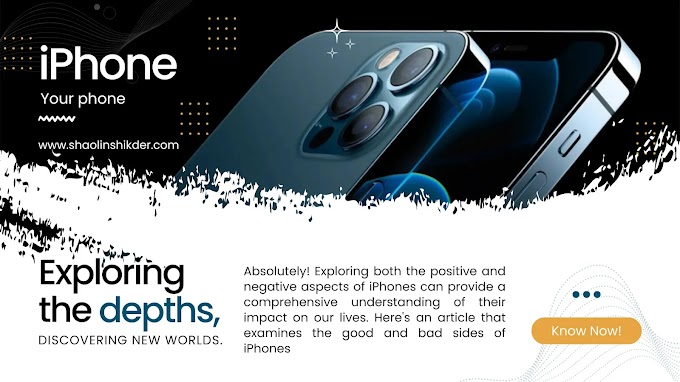The difference between Android and iPhone devices encompasses various aspects, including hardware, software, user experience, and ecosystem. Here's a breakdown, along with some common user comments:
Operating Systems:
- Android: Developed by Google, Android is an open-source operating system used by a wide range of smartphone manufacturers. It offers a high level of customization, diverse hardware options, and access to the Google Play Store for apps. User Comment: "I love Android for its flexibility and choice. I can customize my phone's look and feel, switch between different manufacturers, and access a vast array of apps from the Play Store."
iPhone (iOS): Developed exclusively by Apple, iOS is the operating system specifically designed for Apple devices, providing a consistent user experience across iPhones, iPads, and other Apple products. It offers a more controlled environment with a focus on security and optimization.
User Comment: "iOS feels smooth and intuitive. It may not have as much customization, but the overall user experience, seamless integration with other Apple devices, and the quality of apps in the App Store make it a winner for me."
Hardware:
Android: Available on devices manufactured by various companies, Android smartphones offer a broad range of designs, specifications, screen sizes, and price points to suit diverse user preferences and budgets.
User Comment: "I appreciate the diversity of Android phones. There's a device for everyone - from budget-friendly options to premium flagship models with cutting-edge features."iPhone: Apple designs and manufactures iPhones, providing a more limited but controlled hardware selection with a focus on premium build quality, sleek design, and optimization between hardware and software.
User Comment: "iPhones may not have as many models, but the build quality and attention to detail are top-notch. The design feels premium, and the devices often retain their value over time."
Ecosystem and Integration:
Android: Offers integration with various services and devices. While Google services are prominent, Android can also integrate with a wide range of third-party apps and services.
User Comment: "Android integrates well with Google services like Gmail, Google Drive, and others. I like the flexibility to choose between different apps and services that suit my needs."iPhone: Part of the Apple ecosystem, iPhones seamlessly integrate with other Apple devices such as Macs, iPads, Apple Watch, and services like iCloud, iMessage, and FaceTime.
User Comment: "The seamless integration among Apple devices is a big plus for me. I love how I can start a task on my iPhone and seamlessly continue it on my MacBook or iPad."
Updates and Support:
Android: Software updates are handled by individual manufacturers and carriers, leading to variations in the timing and frequency of updates across different devices.
User Comment: "One downside with Android is the inconsistency in software updates. Some phones get updates quickly, while others take longer, leading to potential security concerns."iPhone: Apple provides consistent and timely software updates directly to all supported devices, ensuring a more uniform experience and longer-term support.
User Comment: "Apple's commitment to providing timely updates for all supported devices is impressive. I feel more secure knowing my device gets the latest features and security patches."
In summary, Android offers diversity, customization, and flexibility, catering to a wide range of preferences, while iPhones provide a more controlled, integrated ecosystem with a focus on security, user experience, and seamless integration among Apple devices. User preferences often revolve around these differences, depending on their individual needs and priorities.







